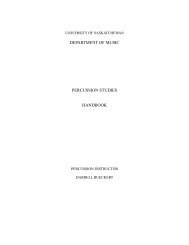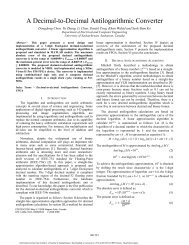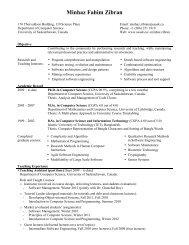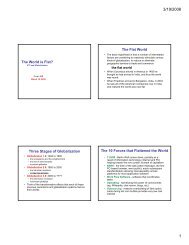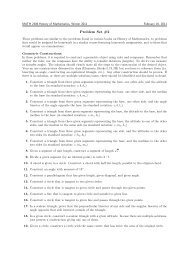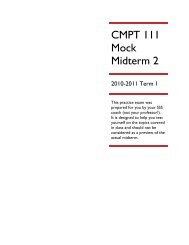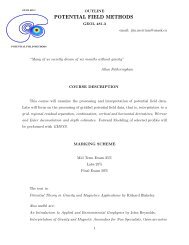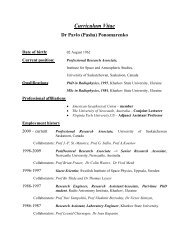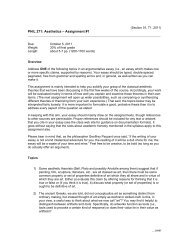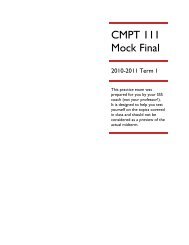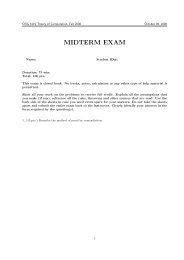Water Resources Engineering - Homepage Usask
Water Resources Engineering - Homepage Usask
Water Resources Engineering - Homepage Usask
Create successful ePaper yourself
Turn your PDF publications into a flip-book with our unique Google optimized e-Paper software.
G4. SYSTEMS APPROACH TO WATER MANAGEMENT<br />
(KUL-code: I874 (Th); I875 (Pr))<br />
Lecturer: LABADIE J.<br />
ECTS-credit: 5 pts<br />
Contact hours: 30 hrs. of theory/30 hrs. of practical<br />
Prerequisites: Mathematics for water engineering (C2), Statistics for water engineering (C3), Surface<br />
hydrology (C6), Information technology (W1) and programming experience in PASCAL,<br />
C, FORTRAN, or BASIC<br />
Time and place: 2nd semester, 13 sessions of 3 hours each, VUB<br />
Course syllabus: Lecture notes<br />
Evaluation: Written examination<br />
Comparable handbook: Mays, L. and Y.K. Tung, 1992. Hydrosystems modeling engineering and management,<br />
McGraw-Hill Book Company, New York.<br />
Course description:<br />
The purpose of this course is to understand and apply the modern tools of systems analysis to the management<br />
and control of water resources and environmental systems. Topics covered include:<br />
- optimal operation of multipurpose reservoir systems<br />
- integrated design of water storage and conveyance systems<br />
- optimal cropping patterns and intraseasonal allocation of irrigation supply<br />
- risk-based design of stochastic reservoir operating rules<br />
- optimal reservoir operation for water quality management<br />
- optimal hydraulic control of canal operations<br />
- river basin management and conjunctive use of groundwater and surface water<br />
- optimal operation of complex multireservoir hydropower systems<br />
- optimal sizing and operation of detention storage for estuarine water quality management<br />
- optimal control of stormwater and combined sewer systems.<br />
Specific systems analysis tools studied for optimal management and control include:<br />
- dynamic programming<br />
- stochastic optimization<br />
- optimal control theory<br />
- network flow optimization<br />
- multiobjective optimization<br />
- expert systems<br />
- genetic algorithms<br />
Class workshops present example problems and train the students on how to use computer software on PC´s for<br />
implementing many of this optimal water management techniques. The practical work applies these tools to a<br />
wide range of water management case studies in the U.S., Brazil, Dominican Republic, Sri Lanka, Egypt,<br />
Pakistan, and Korea.<br />
30 / Course syllabi



